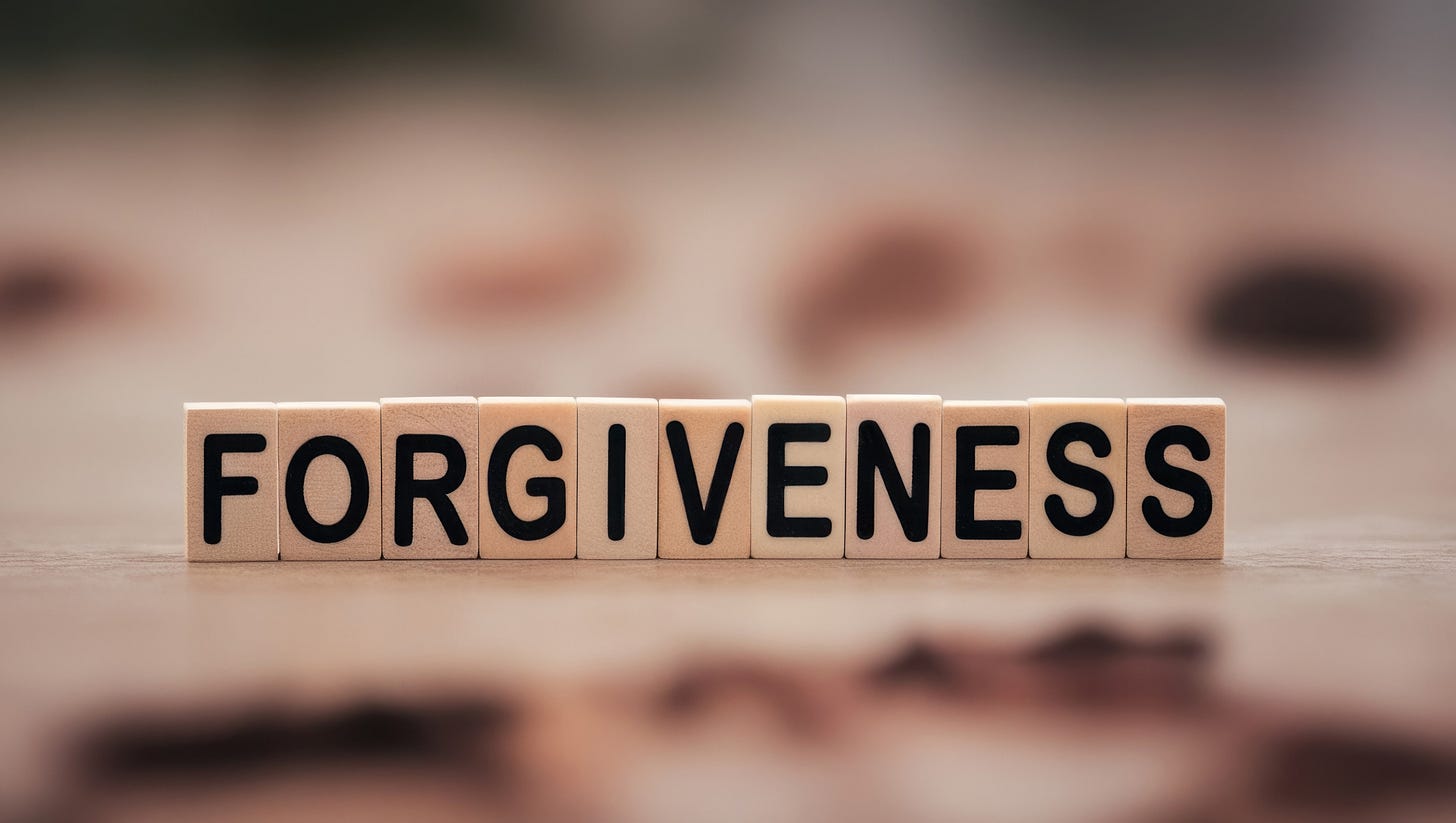Choosing Grace: How to Forgive When It Feels Impossible
Learning to Let Go of Hurt

Have you ever struggled to forgive someone who hurt you? True character is revealed not in our successes but in how we handle offenses. Forgiveness reflects God’s nature.
But yet, in practice, we often find it very difficult. It challenges our natural emotions, sense of justice, and instincts of self-protection.
Forgiveness is Hard
When someone deeply wounds us, the pain doesn’t simply fade away. Emotional scars can linger, making it difficult to let go of resentment. Forgiveness may feel like minimizing the hurt or pretending that it never happened. However, true forgiveness doesn’t deny the pain—it acknowledges the hurt while choosing not to be controlled by it. Healing takes time, and forgiveness is often a process rather than a single moment.
There is also our innate sense of fairness, and when we are wronged, we naturally want justice. Sometimes, this desire turns into a longing for revenge, as we feel that forgiving someone lets them “off the hook.” However, forgiveness does not mean there are no consequences for wrongdoing. Instead, it means releasing our right to seek revenge and trusting God to bring justice in His perfect way and timing (Romans 12:19).
We also have to deal with pride, which can be a significant barrier to forgiveness. When we have been wronged, our ego may resist letting go because it feels like losing or admitting defeat. We may think, “Why should I be the one to forgive? They should come to me first!” However, forgiveness is not about proving who is right—it’s about choosing peace over pride. Humbling ourselves to forgive does not make us weak; it reflects our character's strength and willingness to follow Christ’s example.
One of the most challenging situations is when the person who hurt us does not acknowledge their wrongdoing. We may feel that forgiveness is only possible if the offender apologizes first. However, waiting for an apology gives them power over our emotions. Forgiveness is a personal decision to free ourselves from bitterness, regardless of whether the other person repents. Jesus forgave those who crucified Him, even though they had not asked for it (Luke 23:34).
Many people hesitate to forgive because they fear being vulnerable to more pain. They may believe that forgiveness requires restoring the relationship precisely as before, which is not always wise or safe. Forgiveness and trust are not the same thing. While we are called to forgive, we can also set healthy boundaries to protect ourselves. True forgiveness releases resentment, but it does not mean tolerating ongoing harm.
Many people resist forgiveness because they misunderstand its meaning. Forgiveness does not mean excusing or justifying the wrong, forgetting what happened, or allowing someone to continue mistreating us. It is not about denying justice but about entrusting justice to God. When we forgive, we release bitterness and refuse to let the offense define us. Instead of being weighed down by anger, we step into the freedom and peace that God offers.
When We Forgive, We are at Our Best
If you want to see a person in their best character, it is seen when they forgive. A person’s discretion makes him slow to anger, and it is his glory to overlook an offense, Proverbs 19.11. When we choose to forgive, we reflect the character of God, who forgives iniquity and delights in unfailing love, Micah 7.18. It is in the heart of God to forgive, and it is this type of heart He calls on us to develop. Paul says it this way in Colossians 3.13:
Bearing with one another and forgiving one another if anyone has a grievance against another. Just as the Lord has forgiven you, so you are also to forgive.
How eager should we be to forgive others if we have been forgiven of everything? We must learn to forgive because people will need it. We are all human and prone to weakness and mistakes.
While forgiveness is a personal choice, reconciliation involves action. In Matthew 5:25-26, Jesus emphasizes the urgency of making things right with others.
Matters of Reconciliation are Urgent
Settle quickly with your adversary while you’re on the way with him to the court, or your adversary will hand you over to the judge, and the judge to the officer, and you will be thrown into prison. Truly I tell you, you will never get out of there until you have paid the last penny, Matthew 5.25-26.
Make things right as soon as possible. Time is always moving forward. Days turn into weeks, and weeks into years. Life is fragile. You never know when your life will end… or the other person's life.
As we go through life, God requires us to consider our relationships with others. Is there bad blood? Are things not as they should be? The emphasis is on settling them immediately. Tomorrow is not guaranteed, and Jesus emphasizes that you do not want to enter judgment like that. The time for reconciliation is always now.
Conclusion
As disciples of Jesus, we are called to love, forgive, and reconcile. Forgiveness is not just an option—it is a command. Don't let anger take root. Instead, follow Christ's example and choose love, reconciliation, and peace.
So:
Take the initiative in reconciliation. Reach out with a phone call, a letter, or an in-person conversation to heal the relationship.
Be willing to forgive, as you have been forgiven.
Pray for the one who has wronged you. Ask God to soften your heart and give you the strength to see the other person through His eyes.
Focus on something besides the problem that derailed your relationship.
Practice brotherly love … and keep no record of wrongs suffered.


